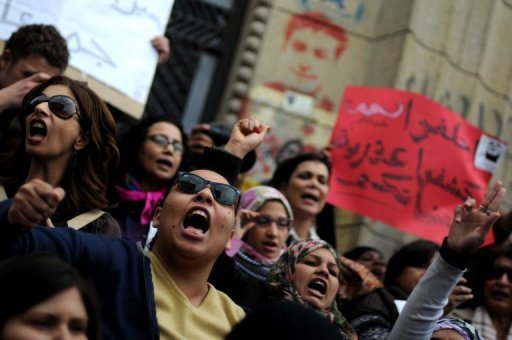During Eid Al-Adha, I skipped slaying sheep in the streets of Cairo and went to visit my girlfriend in Japan instead. Culture shock hit me like a 50-kilo sack of rice five minutes after I stepped off the plane in Osaka, when the customs agent digitally scanned my fingerprints and my retinas, then found my girlfriend’s address on his computer system before I had even finished saying her name. “Alexandra Maria, in Katsuyama? he asked. “Hai, I replied, dazzled and more than a little caught off guard by Japan’s mind-boggling efficiency. In less than a minute, my passport was stamped and I was on my way to Katsuyama, a little mountain town about four hours west of Osaka.
I had been to Japan twice before, but I had come from the US each time. It’s a whole different bowl of noodles coming from Cairo. In Cairo I’m getting used to the IBM mentality when it comes to customer service: Insha’allah, Bokra, Ma’lesh. In Japan, employee enthusiasm is a sacred rite. Gas station attendants, for example, run laps around your car trying to get your windshields and mirrors clean before your tank is filled. Then they guide you into traffic, showering you with thank yous, “Arregato gozaimas!
In Cairo, I’ve learned not to take it personally when I wait an hour or more for someone, only to find out they’re running on “Egyptian time. In Japan, however, people are not fashionably late – they’re fashionably early. To be 10 minutes late is to risk grievously offending your host, not to mention bringing shame upon your house. Twenty minutes late and you’re expected to grab the family samurai sword and commit ritual . Okay, a slight exaggeration.
Foreigners in Cairo are often stunned – sometimes frightened – by the way that Cairenes in the street converse at a pitch about one decibel shy of a shouting match. You might hear a Minnesotan choir lady gasp, “Gosh, are those men fighting? Her tour guide might reply: “No, they’re just chatting. Look – now they’re holding hands and kissing each other on the cheek. Isn’t that nice? Discussions at Goal Café in Zamalek are often audible across the street, if not in Mohandiseen. It’s unsettling at first, but after that it’s fun. The Arabic language requires some volume to achieve proper enunciation. Suffice it to say, the letter ayn does not lend itself to whispering.
By contrast, Japanese conversations – especially those between women – are muted affairs, frequently obscured by the hand-over-mouth whispering technique. The hand-over-mouth technique is also employed to prevent the sights and sounds of unrestrained joy from erupting into the public audiosphere. Outside the cosmopolitan cities, Japanese culture is quiet and conservative, and boisterous displays of personality or stylistic flair are deeply unsettling to the public harmony. People keep to themselves, they wear muted colors, and they shun jewelry and perfume. Even the food is bland.
Though rural Japanese culture seems predicated on blandness, yet the harmony that results from such stringent moderation is truly remarkable. Japan’s small towns – surrounded by mist-shrouded mountains, lined with babbling rivers and canals, dotted with a patchwork of rice paddies, and populated by gentle, respectful people – offer a vision of bygone simplicity that is rare in other developed countries.
Japan’s rural towns lack little in terms of modern accoutrements – after all, Japan is a hub for technological research and design – but in their transition to modernity, the Japanese have managed to guard a place for tradition and, well, humanity. Hand-dyed and hand-woven noren cloths hang over the entrances to homes and shops. Home life centers on the tatami room, where families sit on straw mats with their legs under the kotatsu, or warming table. Simple meals at restaurants are delicately presented (even McDonald’s serves beverages in glassware). Most important of all, respect for elders and ancestors reigns supreme.
I knew I was back in the Middle East as soon as I got off the plane in Dubai, where I had an 11-hour layover on the homeward trip. People jockeyed for position in the security line, elbowing their way to the front. A man bypassed the line at Costa Coffee, expecting to be served ahead of all those waiting patiently. He succeeded. Jet-lagged and irritable, I found myself annoyed by the man’s disrespectful gesture.
But then something wonderful happened – I made eye contact with an older gentleman in a galibiyah and kefiyah, and he said “Ahlan wa Sahlan. When I replied, “Ahlan beek, he smiled widely. He sat down next to me and we talked for about an hour, in English and Arabic, meeting each other halfway between our languages. We talked about anything we could verbalize. As he got up to leave, he repeated, “Ahlan wa Sahlan.
He meant it, and that’s when I realized I was happy to be on my way home.


